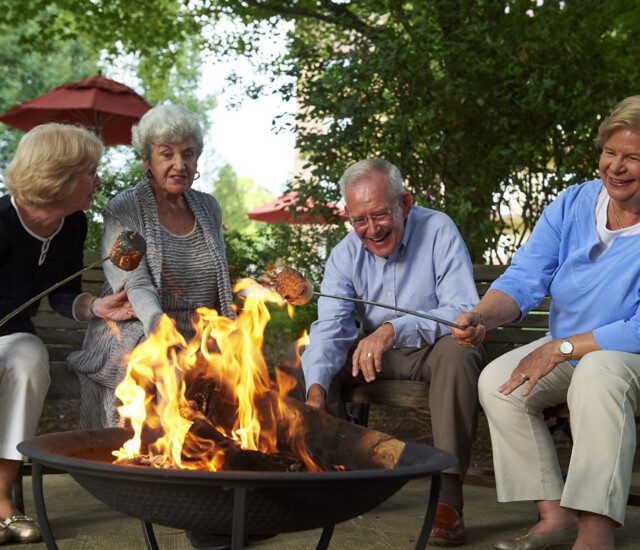Caregiving for a person with Alzheimer’s, dementia or other memory loss diseases can be challenging. Rather than a team of people to support their needs, it’s often left to a single friend or family member to provide care. If you have a person in your life who serves as caregiver for someone with Alzheimer’s, it’s important to remember that you can make a difference in their life by providing the help and support they need.
What is National Family Caregivers Month?
Every November, we observe National Family Caregivers Month. First proposed by the Caregiver Action Network (CAN) — a non-profit organization that provides education, resources and support for family caregivers — the national holiday encourages people to extend appreciation and support to the family caregivers in their lives. The overarching goal of National Family Caregivers Month is to raise awareness for the challenges of caregiving and increase support for caregivers.
This year’s theme, “Caregiving Around the Clock,” provides an apt description of what it’s like to be a caregiver for a person with Alzheimer’s. The demands can limit the caregiver’s ability to take care of themselves and put them at greater risk for anxiety and depression.
Challenges of Being a Caregiver for Seniors with Memory Problems
According to the CDC, family caregivers for individuals with Alzheimer’s and other forms of dementia are at greater risk for anxiety, depression and poor quality of life than caregivers of individuals with other conditions. Caring for a loved one with Alzheimer’s can mean changes to the relationship between the caregiver and the person under their care as the disease progresses. There are ways to maintain a fulfilling connection with their loved one, but it can be increasingly difficult as the disease breaks down their mental and physical abilities.
3 Ways You Can Support a Caregiver
All it takes are small gestures to make a big difference in the life of a caregiver. Here are a handful of ways you can provide a caregiver with the help and support they need:
Check In
Reach out with a phone call, a text message or even a handwritten letter. If you’re able, be there for the caregiver in person. Make an intentional effort to make clear that you understand their hardships and offer a listening ear. You don’t have to provide advice; sometimes all you need to do is listen.
Give Them a Break
Time is the most valuable asset to a caregiver. Think of ways you can free up their time, whether it is spending an afternoon sitting with the person in their care or offering to run an errand for them. Caregivers spend so much of their time caring for someone else’s needs that they often neglect their own. You can help make life a little easier for the caregiver by stepping in, even if only briefly.
Lend a Helping Hand
Caregivers don’t often ask for help, so it’s important to take the initiative and ask how you can help. They may need help making dinner one night or need a prescription picked up. Taking care of small tasks can make a big difference.
Memory Care and Respite Care Options at Friendship Village of South Hills
Caregivers are often the first to lend a helping hand but the last to ask for one. At Friendship Village of South Hills, our memory care services aim to provide trusted and compassionate care for caregivers considering a community for their loved one. Our memory care community is home to private suites that offer each resident a comfortable environment for their familiar routines, in addition to programming that encourages stimulation and engagement for people living with Alzheimer’s and other forms of dementia.
If a caregiver is looking for help on a less permanent basis, respite care is another option. Respite care is a temporary or recurring form of outside care that offers relief to family caregivers. Whether a few days or a few weeks, caregivers can trust that their loved one is in good hands at Friendship Village of South Hills.
If you or someone you know would be interested in learning more about our community, please fill out the form below or give us a call at 724-941-3100.


